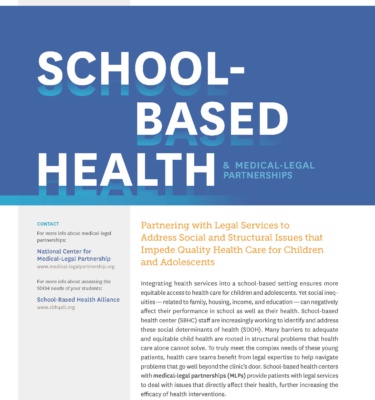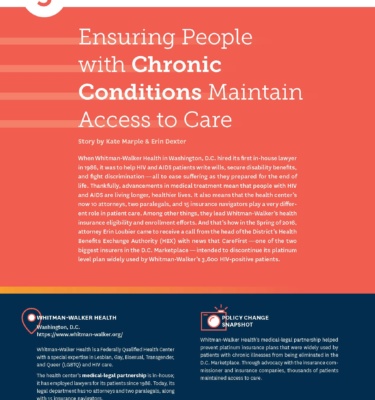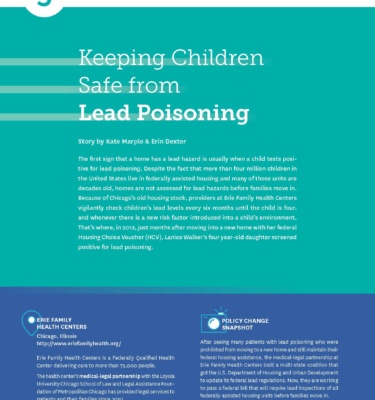Monday, August 6, 2018
This fact sheet describes common social and legal needs that affect the health of youth, and ways integrated legal services can help meet those needs. It examines medical-legal partnership programs at two school-based health centers and how they operate, and it shares stories of students benefiting from medical-legal partnership services....Read More
Wednesday, May 2, 2018
Whitman-Walker Health's medical-legal partnership helped prevent platinum insurance plans that were widely used by patients with chronic illnesses from being eliminated in the D.C. Marketplace. Through advocacy with the insurance commissioner and insurance companies, thousands of patients maintained access to care....Read More
Wednesday, April 18, 2018
After seeing many patients with lead poisoning who were prohibited from moving to a new home and still maintain their federal housing assistance, the medical-legal partnership at Erie Family Health Centers built a multi-state coalition that got the U.S. Department of Housing and Urban Development to update its federal lead regulations. Now, they are working to pass a federal bill that will require lead inspections of all federally assisted housing units before families move in....Read More
Wednesday, April 11, 2018
The moment you’re exposed to the HIV virus, a clock starts ticking. You have 72-hours to begin taking medication that greatly reduces your risk of contracting the virus, and the sooner you start taking it, the more effective it is. Whitman-Walker Health’s medical-legal partnership worked with insurance companies to remove requirements forcing Post-Exposure Prophylaxis medications to be filled by mail. By doing so, they ensured people who were exposed to the HIV virus could get the medication they needed filled at a local pharmacy within the 72-hour window when the drug can be effective in preventing the transmission of HIV....Read More




